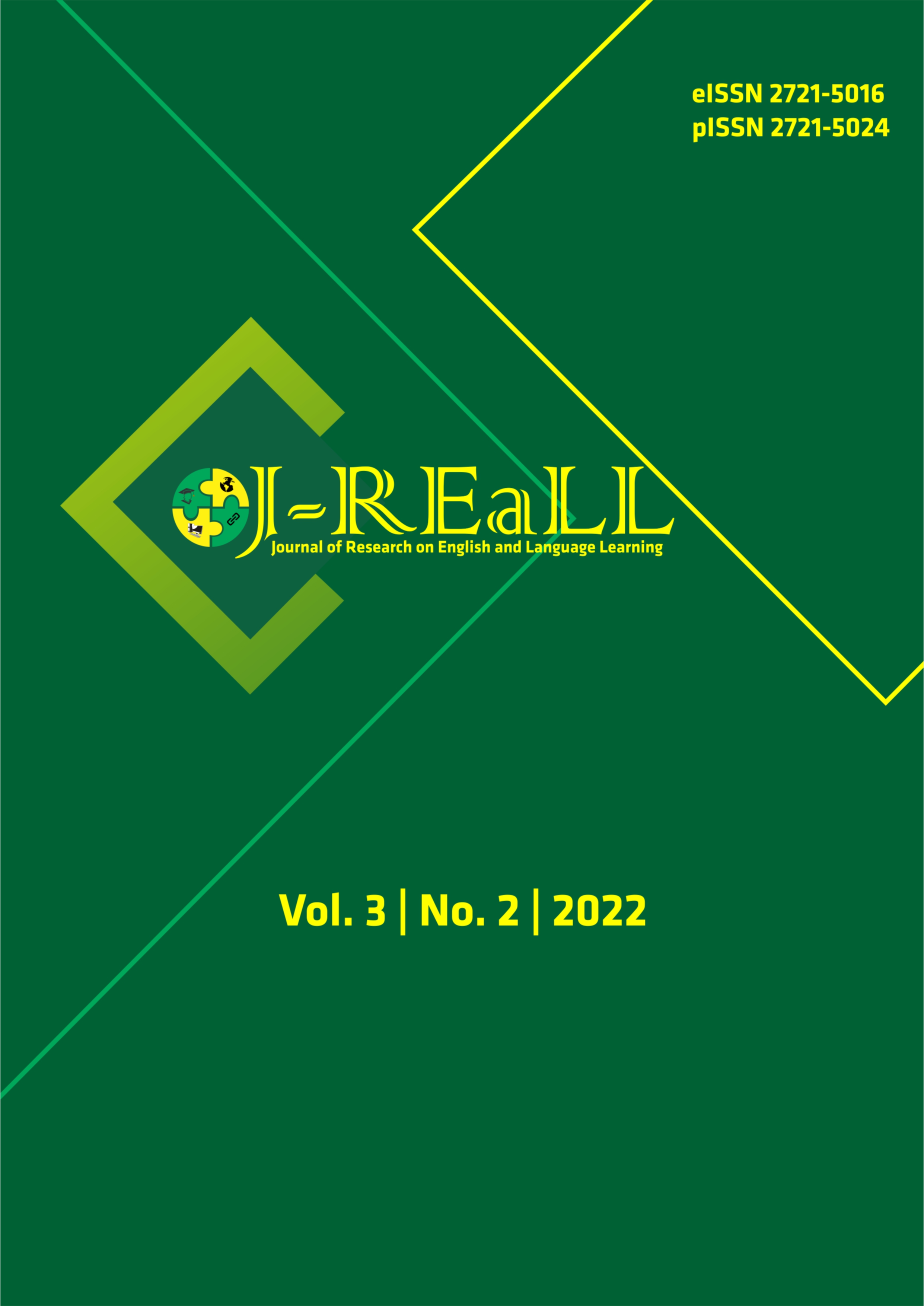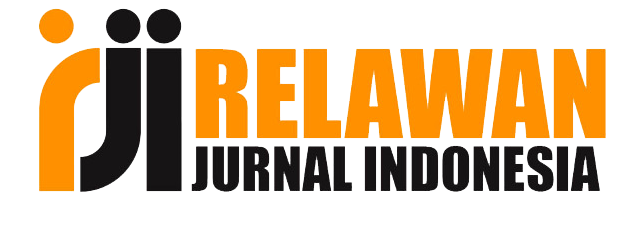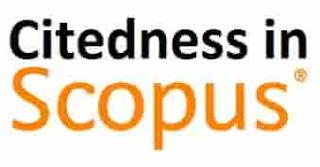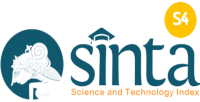Subscribing to diverse subjects in different classes: language development dichotomy
DOI:
https://doi.org/10.33474/j-reall.v3i2.16504Keywords:
Subject allocation, specialisation, curriculum enactment, motivation, learner assertivenessAbstract
Language teachers, yet on the other side, language enhancement is compromised for learners whose home language is not English. Further than that, for teachers lacking specialisation of other subjects allocated to them, besides English language teaching and learning becomes a monotonous activity that does not inspire learner attitudes more so that the greatest percentage of subjects underpinning the curriculum is offered in an English medium. This paper aims to explore if offering different subjects in varying classes has any significant impact on language development. The study is located within interpretivist paradigm using qualitative research appraoch and case study research design. 5 secondary school English language teachers were purposefully nominated and interviewed to study the problem’s complex phenomenon. Findings divulged that multi subject allocation in the site investigated seemed to be compromising subject specification, thus leading to a decline in enhancing language development. The study recommends that to re-build teacher and learner motivation, policies should be put in place to consider subject speciality when allocation of subjects is administered.
References
Ajeng, S. G. (2017). Language learning strategies by Indonesian EFL learners: A case study of gender role. PEOPLE: International Journal of Social Sciences, 3(2), 1768-1783. https://dx.doi.org/10.20319/pijss.2017.32.1768
Bohndick, C., Kohlmeyer, S., & Buhl, H. M. (2017). Competencies and career choice motives: characteristics of high school students interested in teacher education programmes. Journal of Education for Teaching, 43(5), 566-580. https://doi.org/10.1080/02607476.2017.1355029
Braun, V., & Clarke, V. (2006). Using thematic analysis in psychology. Qualitative Research in Psychology, 3, 77-101. https://doi.org/10.1191/1478088706qp063oa
Bridges, S., & Searle, A. (2011). Changing workloads of primary school teachers: "I seem to live on the edge of chaos". School Leadership & Management, 31(5), 413-433. https://doi.org/10.1080/13632434.2011.614943
Amir, M. (2018). Language learning strategies used by junior high school EFL learners. Language and Language Teaching Journal, 21(1), 94-103. https://doi.org/10.24071/llt.2018.210110
Broadfoot, P., Osborn, M. Planel, C. and Sharpe, K. (2000). Promoting Quality in Learning: Does England Have the Answer? Cassell.
Creswell, J.W. (2014). Research design: qualitative, quantitative and mixed methods approaches (4th Ed.). Sage.
Daher, M., Carré, D., Jaramillo, A., Olivares, H., & Tomicic, A. (2017, September). Experience and meaning in qualitative research: A conceptual review and a methodological device proposal. In Forum: Qualitative Social Research (Vol. 18, No. 3, pp. 62-85). Freie Universität Berlin.
Darling-Hammond, L. (2014). Strengthening teacher preparation: the holy grail of teacher education. Peabody Journal of Education, 89, 547 -561. https://doi.org/10.1080/0161956X.2014.93900
Manalansan, E. B. R., Fogata, M. A., & Rogayan Jr, D. V. (2020). Exploring Prospective Teachers' Reasons for Choosing General Science as a Specialization. Journal of Science Learning, 3(3), 149-155. https://doi.org/10.17509/jsl.v3i3.23493
Elliot, S.N., Kratochill, T.R., Cook J. L. & Travex J.F. (2000) Educational Psychology: Effective Teaching, Effective Learning. McGrawHill
Examinations Council of Zambia (2016). Learning achievement at the primary school level: Zambia's national assessment survey report - 2012. Lusaka: Ministry of Education, Science, Vocational Training and Early Education.
Faulkner, S. L., & Trotter, S. P. (2017). Data saturation. The International Encyclopedia of Communication Research Methods, 1-2. https://doi.org/10.1002/9781118901731.iecrm0060
Ishiekwen, A. E., & Benjamin A. A.(2014). Influence of Teachers, Profesional Qualification and Area of Specialization on the Implementation of Environmental Education Curriculum in Cross River State - Nigeria. International Conference on Chemical, Environment & Biological Sciences. p 155-160, http://dx.doi.org/10.15242/IICBE.914120
Johansson, S., & Myrberg, E. (2019). Teacher specialization and student perceived instructional quality: what are the relationships to student reading achievement? Educational Assessment, Evaluation and Accountability, 31(2), 177-200. https://doi.org/10.1007/s11092-019-09297-5
Jordhus-Lier, A. (2018). Institutionalising versatility, accommodating specialists: A discourse analysis of music teachers' professional identities within the Norwegian municipal school of music and arts. (Doctoral thesis). Oslo, Norwegian Academy of Music.
Jordhus-Lier, A. Negotiating versatility and specialisation: On music teachers' identification with subject positions in Norwegian municipal schools of music and performing arts. International Journal of Music Education,39(4) 450-463. https://doi.org/10.1177/0255761421989113
Knoblauch, H. (2013, September). Qualitative methods at the crossroads: Recent developments in interpretive social research. In Forum: Qualitative Social Research (Vol. 14, No. 3). Freie Universität Berlin.
Majoni, C. (2016). Introducing agriculture as a subject in the primary school curriculum in Zimbabwe: Prospects and Challenges. International Journal of Information Research and Review, 3(1), 1669-1671.
Maton, K., & Chen, R. T-H. (2019). Specialization codes: Knowledge, knowers and student success. Routledge.
Meliasari, R. (2019). Exploring English foreign language students' learning strategies in reading ELT materials. Journal of Applied Linguistics (ALTICS), 1(1), 76-85. https://doi.org/10.36423/altics.v1i1.308
Ministry of Education, Science, Vocational Training and Early Education (2013). Zambia Education Curriculum Framework 2013. Government Printers
Moono, M., Mwinsa, G. M., Mwanabayeke, B., Sikota, E., Mwiinga, C., Sinkala M., Mubanga, C., & Chakanyika, W. (2019). The implementation of subject specialisation in primary schools: Analysis of its benefits and challenges. International Journal of Multidisciplinary Research and Development, 6(11), 64-72.
Muijs, D. and Reynolds, D. (2018). Effective Teaching: Evidence and Practice.Sage.
Myrberg, E., Johansson, S., & Rosén, M. (2019). The relation between teacher specialization and student reading achievement. Scandinavian Journal of Educational Research, 63(5), 744-758. https://doi.org/10.1080/00313831.2018.1434826
Ndhlovu Z. B., Nkhata, B., Chipindi, F. M., Kalinde. B, Kaluba, C, Malama, E, Mambwe, R, Bwalya, K, Lufungulo, E. S. & Chipande, H. Subject Specialisation in Primary School: A Theoretical Review and Implications for Policy and Practice in Zambia. Journal of Curriculum and Teaching,10(4), 13-24. https://doi.org/10.5430/jct.v10n4p13
Palinkas, L. A., Green, C. A., Wisdom, J. P., & Hoagwood, K.E. (2015). Purposeful sampling for qualitative data collection and analysis in mixed method implementation research. Administration and Policy in Mental Health and Mental Health Services Research,5, 533-44. https://doi.org/10.1007/s10488-013-0528-y
Patton, M. Q., (1990). Qualitative evaluation and research methods (2nd Ed.). SAGE Publications, Inc.
Pickl, G, Holzinger, A. & Kopp-Sixt, S. The special education teacher between the priorities of inclusion and specialization. International Journal of Inclusive Education, 20(8), 828-843. http://dx.doi.org/10.1080/13603116.2015.1115559
Poland, S., Colburn, A., & Long, D. E. (2017). Teacher perspectives on specialisation in the elementary classroom: Implications for science instruction. International Journal of Science Education, 39(13), 1715-1732. https://doi.org/10.1080/09500693.2017.1351646
Ponelis, S. R. (2015). Using interpretive qualitative case studies for exploratory research in doctoral studies: A case of information systems research in small and medium enterprises. International Journal of Doctoral Studies, 10(1), 535-550.
Razali, F., Talib, O., Abd Manaf, U. K., & Hassan, S. A. (2018). Students attitude towards science, technology, engineering and mathematics in developing career aspiration. International Journal of Academic Research in Business and Social Sciences, 8(5), 946-960 https://doi.org/10.6007/ijarbss/v8-i5/4242
Roy, J. (2016). The benefits of Teacher Specialisation in the Upper Elementary Classroom. Linkedin Pulse, 18th January. Retrieved from www.linkedin.com/pulse/benefits-teacherspecialisation-upper-elementary-classroom-jesse-ray
Smith, J. A. (1996). Qualitative methodology: analysing participants' perspectives. Current Opinion in Psychiatry, 9(6), 417-421.
Tanjung, F. Z. (2018). Language learning strategies in English as a foreign language classroom in Indonesian higher education context. LLT Journal: A Journal on Language and Language Teaching, 21(Suppl), 50-68. https://doi.org/10.24071/llt.2018.Suppl2106
Thompson, K. M. (2009). Remembering Elfreda Chatman: A champion of theory development in library and information science education. Journal of Education for Library and Information Science, 119-126. https://www.jstor.org/stable/40732569
Wilson, T. P. (2017). Normative and interpretive paradigms in sociology. In Everyday Life (pp. 57-79). Routledge.
Downloads
Published
How to Cite
Issue
Section
License
Copyright (c) 2022 Bulelwa Makena, Bunmi Isaiah Omodan

This work is licensed under a Creative Commons Attribution 4.0 International License.
Authors who publish this journal agree to the following terms:
- Authors retain copyright and grant the journal right of first publication with the work simultaneously licensed under a Creative Commons Attribution License that allows others to share the work with an acknowledgement of the work's authorship and initial publication in this journal.
- Authors can separately make additional contractual arrangements for non-exclusive distribution published by the journal (e.g., publish it in a book), with an acknowledgement of its initial publication in this journal.
- Authors are allowed and encouraged to send their work via online (e.g., in the institutional repositories or their website) after published by the journal.






















